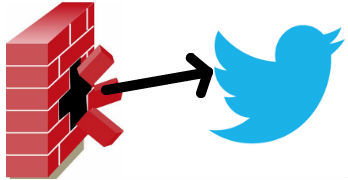
by Shaung Li
Turkey blocked Youtube and Twitter.
People are furious over this impaired Internet freedom.
Everyone.
But here’s why I don’t think it is necessarily a bad thing (from my own personal experience, as someone born and raised in the world’s second heavily censored country).
Firstly what does majority do with Youtube? Hmm, watching funny cat videos. and dogs.
Blocking Youtube and Twitter, the two biggest social media in the world, shifts the default of Internet use in Turkey from inclusion to exclusion. Internet is supposed to be a free flow of information and communication.
A lock and a key are like the flip sides of a coin. Even the intricately tied Gordian lock that signifies his power and status can be undo, with a simple stroke from Alexander.
 Internet was built as a non centralized solution against nuclear bomb with the ever running switching packets. Placing a lock? Does that even sound possible?
Internet was built as a non centralized solution against nuclear bomb with the ever running switching packets. Placing a lock? Does that even sound possible?
Turkish people voiced their objections already as Tor usage in Turkey surges during Twitter ban. According to the anonymous browsing tool Metrics, connections over Tor nearly doubled from around 25,000 direct connects in the country to over 40,000.
I’d like to ask, how many people even know what was Tor before they were pushed to use it?
At the age of 16, I was a teenager helplessly in love with American punk rock. I spent hours everyday online. on Youtube watching my favorite band’s live shows, interviews, and stalking the band members on Twitter, especially their girlfriends. All of a sudden, Chinese government was blocking YouTube. That content could not be found on any websites within the Great Firewall. I was depressed for a while, until I learnt the magic of VPN.
I searched tutorials, read articles and books, taught myself how did proxy work, and since Chinese government had always been updating the firewall, my skills need to be updated too. That was how I got into tech. Well, forced into. Sort of.
I wasn’t the only one. There are a portion of young Internet users who are profoundly interested with the world outside. Climbing the wall keeps us from rust, from the dead poodle. As Jim DeRogatis said, ”I’m nothing, if not a ridiculously earnest young thing.”
This shift from inclusion to exclusion might also cause on a change in Turkish Internet’s value system. Something that was ubiquitous was suddenly taken away, as scholar Wendy Chun would call it, “habitual new media”, would push people into pondering the meaning of what they’ve taken for granted.
After the ban of Youtube and Twitter, I treasured my time outside of the great firewall. Instead of stalking band’s members’ wives, I started reading politics, uncensored voices around the world; reading other issues about the music I love, making full use of the content that was not that easy to get.
So all in all, Turkish people, so far you are doing so good!
Leave a Reply